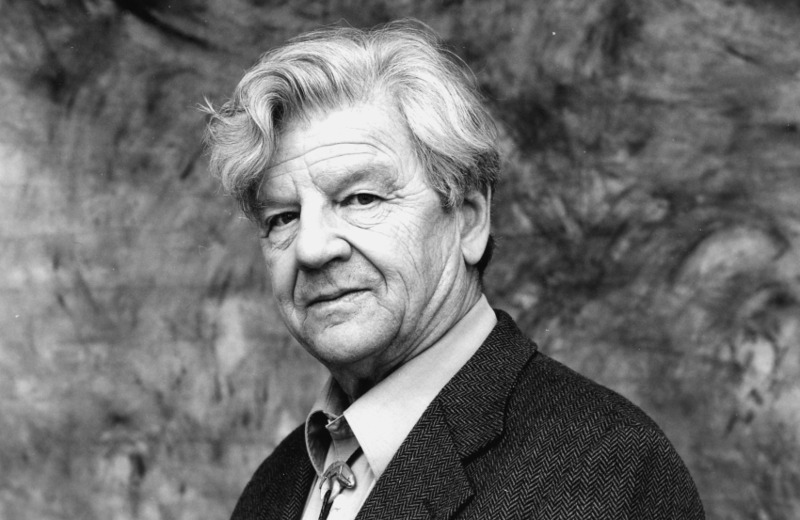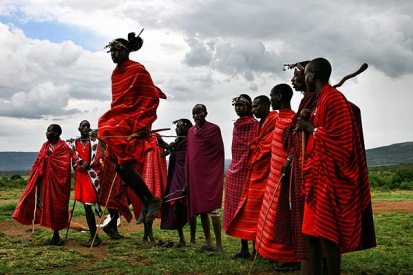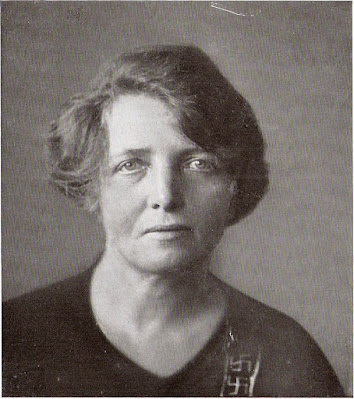Ludendorff position on mass immigration into the West and sociobiology

Ludendorff position on mass immigration into the West and sociobiology.
Why high immigration weakens cohesion in a community
Answers from Behavioral Biology and Philosophy
Humans are social creatures. The massive immigration of people of foreign descent to Germany therefore raises the question of how this affects the cohesion between people. There is an urgent need to take a look at the current research results of sociobiology, i.e. the branch of behavioral biology that deals with social behavior. What does this science have to say to us and how are Mathilde Ludendorff's philosophical statements to be judged in the light of these scientific findings?
For speed readers, here is a brief overview of the contents. If you want to go deeper, please refer to the full version:
Statements from Behavioral and Sociobiology
A core message of sociobiology is that an individual wants to pass on as many copies of his genes as possible to the next generation. This is usually done by conceiving and raising offspring themselves. Copies of one's own genes are not only found in one's own children, but in all relatives. The closer the relationship, the greater the number of common genes. Thus, by supporting relatives, one can indirectly spread copies of one's own genes. Sociobiology speaks of "kin selection" in this context. This explains how altruism was able to arise in evolution, even though an individual seems to be acting against his own interests here
Relative selection also explains why human communities such as tribes, races, or peoples stick together. The basic message is this: Any two people within an ethnic group are, on average, more hereditarily similar to each other than two individuals from different ethnic groups. This results in a greater willingness to help within one's own group.
The larger a group, i.e. the lower the degree of kinship and personal acquaintance among the group members, the more important learned "artificial" traits become in addition to inherited traits. In birds, for example, learned songs can indicate group membership, and in humans, for example, language, clothing, art, symbols, rituals and body painting.

According to Irenaeus Eibl-Eibesfeldt, the famous ethologist, even the large communities and nation states are ultimately also a matter of kin selection, since the members of an ethnic group who distinguish themselves from others by language and customs also prefer to marry among themselves. The common ancestry or sense of family is strengthened by emphasizing the similarity, which is usually an expression of kinship, through clothing, customs and, of course, language. Unifying ideologies and religions can also be developed.
The behavioural biologist draws the following conclusion from these sociobiological contexts: "If too many competing interest groups are 'united' in a state, then the internal rivalries can weaken the larger community. Traditional nation-states should therefore be more concerned with maintaining their ethnic uniformity." (in: "Wider die Mißtrauensgesellschaft", Piper, 1995)
Comparison with statements by Mathilde Ludendorff
The peoples and races possess a genetic material that determines their respective "characteristics", the so-called "racial genetic material". Figuratively speaking, this genetic material can "resonate" like the resonating body of a violin when something appropriate to the species is experienced in consciousness. In everyday life, this is the case, for example, with listening to the mother tongue, cultivating folk dances and music, with species-appropriate celebrations and all customs and customs. In this way, the cohesion between the people is strengthened and individualistic, selfish tendencies are pushed back. In the case of strong strokes of fate, e.g. in the case of a war, the emotional shock and the feeling of togetherness are particularly strong.
Both sociobiology and Mathilde Ludendorff thus assume that the common genetic material or genetic relationship is the basis for the cohesion of a people. Both also emphasize the importance of culturally acquired characteristics (such as language).
What are the consequences of racial mixing, or in modern terms: What are the effects when the degree of kinship in a human community decreases, i.e. the genetic material becomes more and more inconsistent? The philosopher: "Above all, the degeneration of instincts will be very noticeable. For the rest, since the national consciousness is exhausted, each individual lives for himself. One cares for his own and the children's sustenance, the other follows his desire for pleasure, the other again his personal salvation, the third lives exclusively for his work, what do they all care about the people?".
To compare Irenaeus Eibl-Eibesfeldt in "modern" language, but in terms of content pointing in the same direction: "Hedonistically motivated egocentrism (directed towards sensuality and pleasure) is dressed up as self-realization." (...) "Teaching and public relations neglect to convey an overarching sense of community that also includes the national, and without a sense of community, a state disintegrates."
This is understandable from a sociobiological point of view: If the degree of kinship with one's fellow human beings is only low, there is no reason to behave altruistically and, for example, to risk one's life for one's fellow human beings in war. From this it follows that whoever wants to rule over peoples must fight against their hereditary unity and the old customs and customs, because in doing so he weakens their power of resistance.
According to Mathilde Ludendorff, the consequences of a world religion are similar to those of racial mixing: "A people under world religion then flutters completely apart into millions of individual souls who have nothing to do with each other, unless economic or professional considerations point them to each other." The opposite is true of popular religions. In line with this, scientific research also points to the importance of the Jewish religion for the preservation of the Jewish people over 2000 years of dispersion.
Summary
The demand for the preservation of peoples accommodates the hereditary predisposition of man. The genetic make-up within a community must not become too diverse, if caring (altruistic) behaviour and thus the cohesion of the community are not to be endangered. With this fundamental statement, behavioral biology confirms Mathilde Ludendorff's philosophically grounded view.
Sources:
Eibl-Eibesfeldt, Irenaeus (1995): Against the Society of Mistrust. – Piper, 255 p.
Ludendorff, M.: The People's Soul and its Power Designers. A Philosophy of History. – First edition: 1933.




Comments
Post a Comment